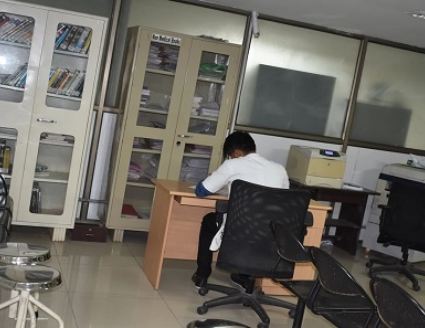The broad goal of the teaching of undergraduate students Microbiology is to provide an understanding of the natural history of infectious disease in order to deal with the etiology, pathogenesis, laboratory diagnosis, treatment and control of infections in the community.
(i) KNOWLEDGE
At the end of the course the student should be able to:
(ii) SKILLS
At the end of the course, the student should be able to:
(iii) INTEGRATION
The student should understand infectious diseases of national importance in relation to the clinical, therapeutic, and preventive aspects.
Professor
Microbiology
Professor
Microbiology
Professor
Microbiology
Associate Professor
Microbiology
Assistant Professor
Microbiology
Assistant Professor
Microbiology
Tutor
Microbiology
Tutor
Microbiology
Tutor
Microbiology
Tutor
Microbiology
Tutor
Microbiology
As Microbiology department is helping in diagnostics services at GKGH and involved in Teaching MBBS and DMLT students.
Hospital side (Central lab) functions 24X7. Where all sample collections are done as well as Rapid serology tests are being performed.
College side (Bacteriology lab)- 9 am to 5 pm. Where all Blood, urine, pus etc. cultures are performed, and antibiotic sensitivity testing is done.
College side (Serology ELISA) – 9 am to 5 pm. Where Dengue and chikungunya ELISA are performed.
College side (Molecular lab) – 9 am to 5 pm. Where COVID 19 and H1N1 RTPCR tests are performed.
College side (Mycology lab) – 9 am to 5 pm. Where all fungal cultures are performed.
College side (parasitology lab) – 9 am to 5 pm -where Stool routine and microscopy is performed.
College side (Media preparation) – 9 am to 5 pm – Where all culture media are prepared.
Hospital side (Flu OPD) functions 24X7. Where Rapid testing of COVID 19 is performed.








